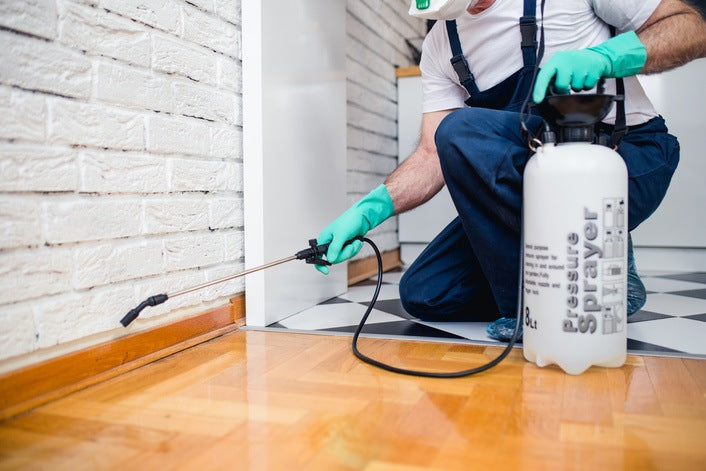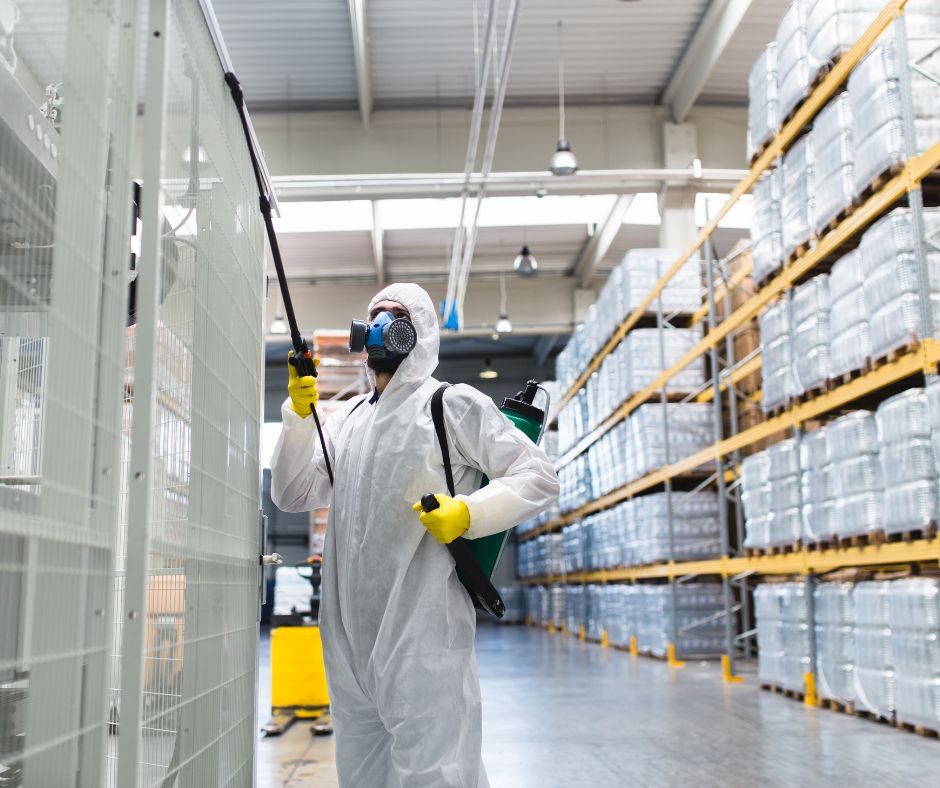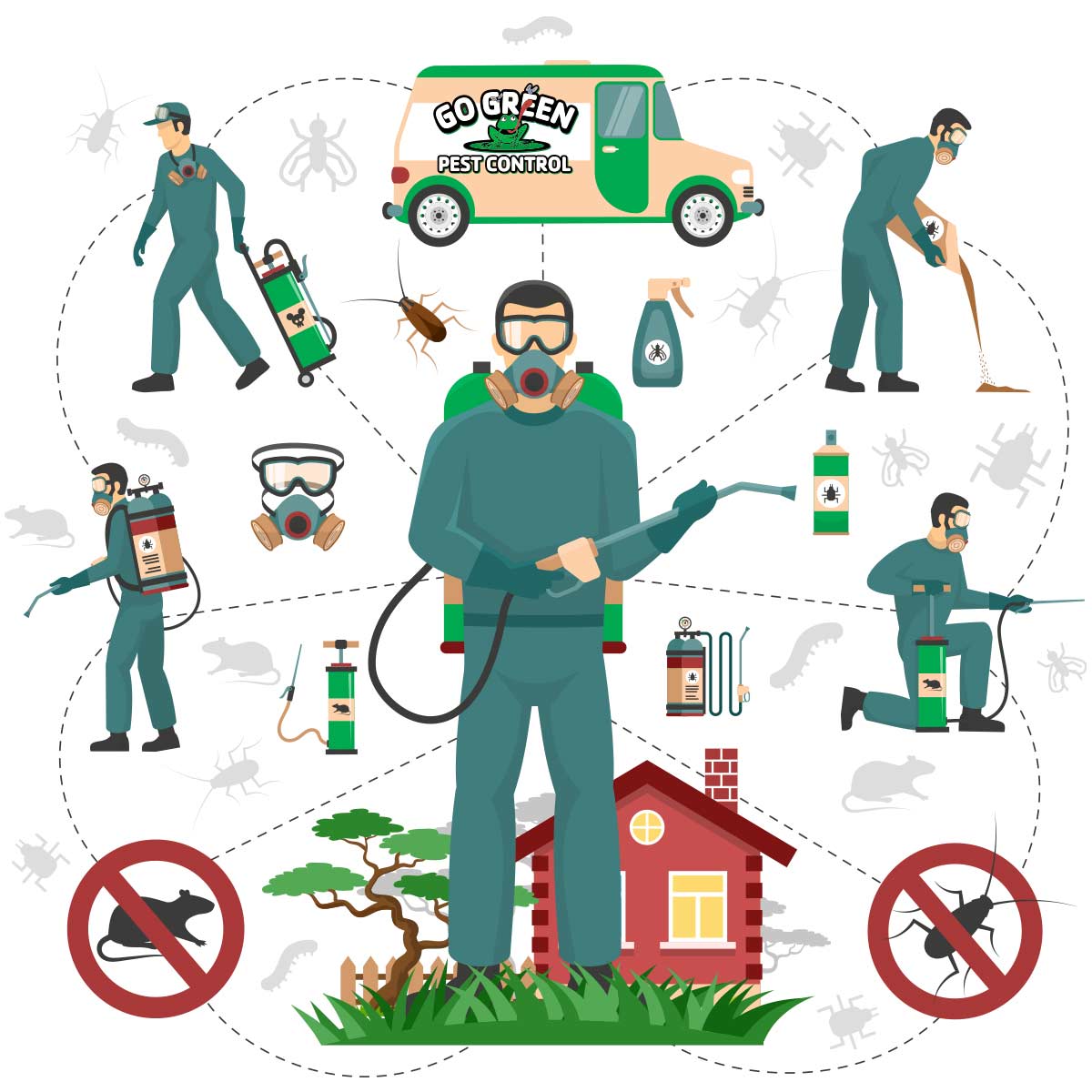Expert Rodent Control Port Charlotte to Avoid Damage to Your Property
Wiki Article
Uncover the Importance of Parasite Control in Preserving a Healthy Environment and Treatment Techniques

The Function of Pests in Ecological Communities
Parasites, commonly watched exclusively as hassles, play a diverse role in ecosystems that is essential for preserving ecological equilibrium. They contribute significantly to numerous eco-friendly processes, including pollination, nutrient cycling, and pest control. Several insect types, such as butterflies and , are essential pollinators for a large range of plants, which in turn sustains biodiversity and food manufacturing.Furthermore, pests function as target for many killers, developing an important web link in food webs. This interdependence ensures the survival of numerous species and aids manage populations within communities (Termite treatment Port Charlotte). Decomposer parasites, such as certain beetles and fungi, are crucial in breaking down organic matter, hence improving soil and helping with vitamins and mineral recycling.
Alternatively, while parasites can be helpful, their overpopulation or invasion right into non-native atmospheres may interfere with these ecological functions. This complexity emphasizes the importance of comprehending parasite characteristics, as reliable bug management techniques need to take into consideration both their ecological roles and potential influence on human tasks. Balancing pest existence while decreasing injury is necessary for preserving the honesty of communities and making sure farming efficiency.
Health And Wellness Dangers Associated With Insects
The presence of pests in various environments extends past their eco-friendly duties, as they additionally posture substantial wellness risks to humans and animals. Lots of insects, consisting of rodents, bloodsuckers, and insects, are providers of diseases that can have major health effects. As an example, rodents are known to send hantavirus and leptospirosis, both of which can bring about serious respiratory and kidney concerns, respectively.Bugs such as mosquitoes and ticks are notorious for spreading vector-borne conditions like jungle fever, dengue high temperature, and Lyme disease. These ailments can lead to high morbidity and mortality prices, especially in susceptible populations. Additionally, insects like cockroaches and bedbugs can exacerbate allergic reactions and bronchial asthma, adding to breathing problems in people, especially those with pre-existing problems.
Furthermore, the visibility of insects can cause mental stress and anxiety and discomfort, influencing overall health. Contamination of food and surfaces by bug droppings and remains can result in foodborne illnesses, highlighting the relevance of maintaining sanitary conditions. Comprehending the wellness risks associated with bugs is critical in acknowledging the necessity of reliable pest management methods to guard human and animal health.

Benefits of Effective Pest Control
Efficient bug control is crucial for preserving a healthy and safe environment, as it consistently mitigates the countless dangers connected with bug problems. One of the main advantages of efficient pest monitoring is the reduction of health and wellness threats.Furthermore, effective insect control safeguards residential or commercial property and structures from damage. Numerous insects, like termites and woodworker ants, can cause substantial architectural damage that may call for pricey repairs. By proactively managing these invasions, organizations and property owners can secure their investments.
Another considerable advantage is the improvement of general quality of life. A pest-free atmosphere contributes to psychological health and minimizes stress linked with problems. Effective pest control promotes a much safer environment for children and animals, ensuring that homes stay shelters totally free from unsafe chemicals and disease-causing microorganisms.
Typical Bug Control Strategies

In the realm of insect monitoring, numerous techniques are used to deal with invasions properly. These techniques can be generally categorized into 3 primary strategies: cultural, mechanical, and chemical controls.
Social control entails customizing practices to lower bug facility, reproduction, and survival. This may include crop turning, appropriate sanitation, and habitat control, which jointly develop an environment much less for pest proliferation.
Mechanical control utilizes physical methods to get rid of bugs (Termite treatment Port Charlotte). Techniques such as obstacles, vacuum cleaners, and catches are generally used to straight remove insects from a location. This strategy is especially effective for managing rodents and bugs without the usage of harmful chemicals
Chemical control entails the application of pesticides to manage insects. These materials can be classified into pesticides, fungicides, and herbicides, each targeting certain sorts of pests. It is critical to utilize these chemicals carefully, sticking to security standards and guidelines to reduce possible harm to non-target species and the setting.
Each pest control technique has its benefits and restrictions, and typically, an integrated strategy combining multiple methods yields the best lead to preserving a pest-free setting.
Lasting Pest Administration Practices
Sustainable bug management methods encompass a series of techniques created to minimize environmental impact while successfully regulating insect populaces. These practices focus on the use of eco pleasant methods over chemical pesticides, thus reducing the risk of injury to non-target types, consisting of helpful pests, wildlife, and human beings.Integrated Pest Monitoring (IPM) is a foundation of sustainable methods, incorporating biological, Mosquito control services social, mechanical, and chemical methods to manage pests. For instance, organic control entails introducing natural predators or bloodsuckers to subdue parasite populaces. Social methods, such as plant turning and polyculture, interfere with pest life process and enhance ecosystem resilience.
Mechanical techniques, such as traps or obstacles, can properly protect against parasite access without chemical treatment. Furthermore, keeping healthy and balanced environments through correct dirt administration, plant health and wellness, and biodiversity can normally alleviate parasite concerns.
Education and recognition are important parts, empowering neighborhoods and people to identify parasite threats early and implement preventive actions. Termite treatment Port Charlotte. By promoting an alternative technique that stabilizes pest control with eco-friendly integrity, lasting insect administration techniques not only shield plants and frameworks however likewise add to a much healthier setting for future generations
Final Thought

Recognizing the health threats connected with parasites is vital in identifying the requirement of reliable pest monitoring methods to safeguard human and animal health.
Effective parasite control is necessary for maintaining a healthy and balanced and secure setting, as it consistently alleviates the many dangers connected with parasite problems.Integrated Bug Administration (IPM) is a foundation of lasting practices, integrating biological, social, mechanical, and chemical tactics to manage pests. By comprehending the duty of bugs, identifying associated wellness risks, and using varied treatment techniques, a sustainable approach to pest administration can be attained. Integrated Parasite Administration (IPM) stresses an all natural methodology that minimizes injury to valuable microorganisms while efficiently managing parasite populations.
Report this wiki page